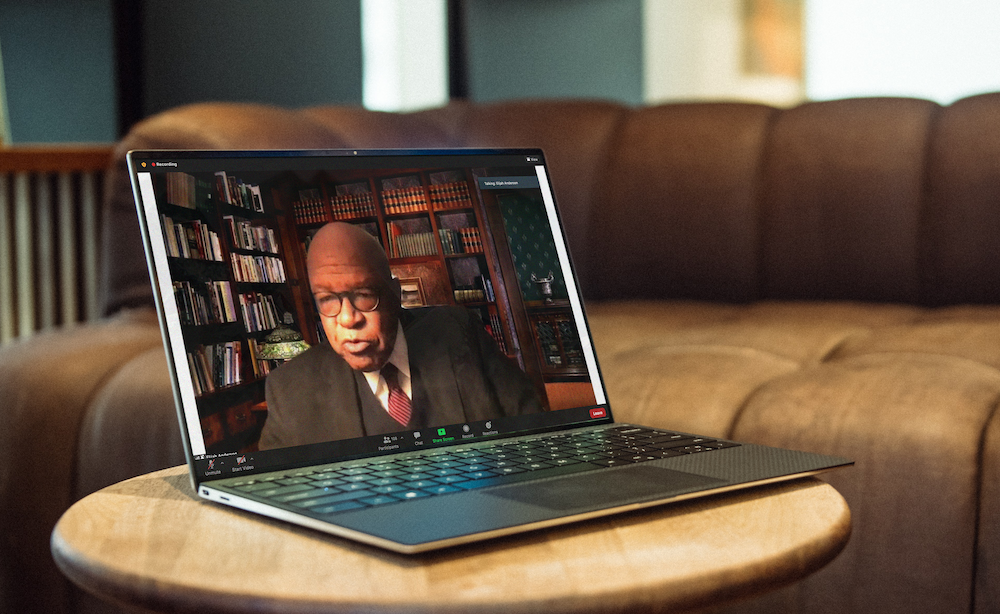
Zaporah Price, Contributing Photographer
On Thursday, the Yale African-American Affinity group hosted a Black History Month talk titled “Being Black in White Space.” Sterling Professor of Sociology and of African American Studies Elijah Anderson, who is currently working on a book of the same name, was the event’s guest speaker.
Over 120 faculty, staff and community members gathered via Zoom for a historical discussion of African Americans in the United States from segregation to the 21st century. Anderson’s talk also focused on the “inclusion of Black people” in spaces like the workplace, and centered on topics including racial stereotypes and affirmative action. The talk was moderated by Reese McLeod, a senior administrative assistant in the School of Medicine’s department of cardiovascular medicine. The event is part of a series of events hosted by the YAAA in celebration of Black History Month.
“You also need a workplace that is receptive of people that look like you,” Anderson told listeners. “Things are changing up today … things have somewhat improved.”
Anderson talked about his book, “The Cosmopolitan Canopy: Race and Civility in Everyday Life,” which examines the “diverse civility [in a] sea of racial segregation” in American metropolitan cities. He spoke about the legacies of American segregation and added that with the passage of civil rights legislation, some of these discriminatory practices have improved — but said there is still work to be done. Anderson referenced recent instances of racism, such as the 2018 arrest of two Black men in Starbucks that garnered national attention and the 2021 storming of the United States Capitol. At the end of the talk, he took questions from the audience.
McLeod wrote in an email to the News that she hoped the talk gave participants “a sense of precisely what black people have and continue to go through every day because of black skin.”
The YAAA has been hosting and co-sponsoring events with other groups since the start of Black History Month. Thursday’s event is the group’s second guest speaker discussion — the first was on Feb. 4 with the Chair of Internal Medicine and Vice Provost for Faculty Development and Diversity Gary Desir MED ’80. At that event, Mesir — who also serves on the President’s Committee on Diversity, Inclusion and Belonging — gave a talk on health equity in the context of the COVID-19 pandemic.
This past Tuesday, YAAA co-hosted a screening and film talk on “African Heritage in Mexico City”, per the YAAA website, with the Yale Latino Networking Group, the LGBTQ Affinity Group and Working Women’s Network.
McLeod said that she was “truly excited” for the YAAA events slated to take place this year — the group plans to hold additional events in recognition of Black History Month, as well as Women’s History Month, which is traditionally celebrated in March.
Katie Bathersfield, a first year at Arizona State University who attended the talk, said that she “treasured exposure” to events such as these.
“I respect Dr. Anderson more than I can say and thank him for his time,” Bathersfield wrote in an email to the News. “I know that it has and will continue to make a difference.”
Bathersfield said her main takeaway was how far the country still has to go in the fight for equality.
The YAAA, in collaboration with the Future Leaders of Yale, plans to host a panel discussion for young women of color at 12 p.m. on Feb. 15.
Zaporah Price | zaporah.price@yale.edu








